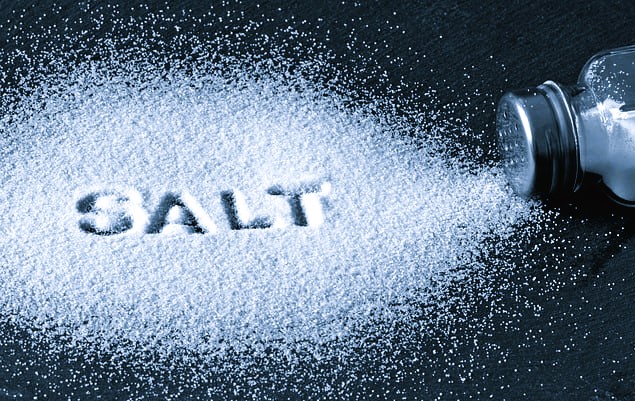What is Sodium? Importance, Functions, and Ways to Maintain Healthy Levels
Learn what sodium is, its biological significance, normal levels in the body, and how to maintain a healthy sodium balance for optimal nerve, muscle, and heart function.


What is Sodium and Why It’s Essential for the Human Body
Sodium is an essential mineral and electrolyte that plays a vital role in maintaining human health. Represented by the chemical symbol Na, sodium is an alkali metal found in Group 1 of the periodic table. Known for its high reactivity and ability to form various compounds, sodium supports several critical biological and physiological processes.
In our daily diet, sodium primarily comes from table salt (sodium chloride), processed foods, vegetables, and dairy products. Although our body needs only a small amount of sodium, maintaining the right balance is crucial for overall well-being.
Biological Significance of Sodium
Sodium is indispensable to numerous bodily functions that help maintain balance and stability. Let’s explore its major biological roles:
1. Regulation of Blood Pressure
Sodium helps control blood pressure by regulating the balance of fluids in the body. Working closely with potassium, sodium manages the movement of water between cells and blood plasma. Maintaining the right sodium levels is essential for heart health and preventing hypertension.
2. Nerve Function and Signal Transmission
The sodium-potassium pump in nerve cells allows the body to generate and transmit electrical impulses. This process enables communication between neurons, ensuring proper sensory perception, reflexes, and motor control.
3. Muscle Contraction
Sodium is vital for muscle contraction, allowing muscles to respond to nerve stimulation. This includes both voluntary movements (like walking) and involuntary actions such as heartbeat and digestive contractions.
4. Fluid Balance and Cellular Homeostasis
By controlling the amount of water inside and around cells, sodium ensures fluid balance and cellular homeostasis. This balance supports nutrient transport, waste removal, and optimal cell function.
In short, sodium is essential for maintaining healthy blood pressure, nerve function, muscle activity, and fluid balance, making it one of the most important electrolytes in the human body.
Normal Sodium Levels in the Human Body
Sodium concentration in the blood is measured through a serum sodium test, which provides valuable insights into a person’s health status.
The normal sodium range in a healthy individual is typically 135–145 milliequivalents per liter (mEq/L).
Normal range (135–145 mEq/L): Indicates balanced hydration and proper electrolyte function.
High sodium (Hypernatremia): Levels above 145 mEq/L may cause confusion, muscle twitching, and seizures—often due to dehydration or excessive salt intake.
Low sodium (Hyponatremia): Levels below 135 mEq/L may cause nausea, headache, fatigue, and in severe cases, brain swelling or coma.
Regular monitoring of sodium levels is especially important for individuals with kidney issues, heart disease, or hormonal imbalances.
Factors Affecting Sodium Levels
Several lifestyle and health factors influence sodium levels in the body. Understanding them can help you maintain proper balance:
Diet:
Processed and fast foods are rich in sodium. Excessive intake can lead to high blood pressure, while too little sodium can cause muscle weakness or cramps.Hydration:
Dehydration raises sodium concentration in the blood, while overhydration can dilute sodium levels, leading to hyponatremia. Balanced water intake is key.Kidney Function:
The kidneys regulate sodium excretion. Kidney disorders can disrupt this process, leading to either sodium retention or depletion.Hormonal Influence:
Hormones like aldosterone and antidiuretic hormone (ADH) maintain sodium and water balance. Diseases such as Addison’s disease or SIADH can cause sodium imbalances.Medical Conditions and Medications:
Heart failure, liver cirrhosis, and certain diuretics or antidepressants may affect sodium regulation in the body.
How to Maintain Healthy Sodium Levels
Maintaining optimal sodium balance is essential for preventing health complications. Here are some practical tips:
Eat a balanced diet: Include fruits, vegetables, and whole grains while limiting salty and processed foods.
Read food labels: Check for sodium content in packaged foods.
Stay hydrated: Drink enough water daily, especially during hot weather or exercise.
Exercise regularly: Helps maintain circulation and electrolyte balance.
Monitor symptoms: Watch for signs like fatigue, swelling, or confusion that may indicate an imbalance.
Consult your doctor: For personalized guidance, especially if you have chronic health conditions or are taking medication.
Conclusion
Sodium is a small but powerful element that supports essential bodily processes — from nerve impulses and muscle contractions to fluid balance and blood pressure regulation. While it’s vital for health, both too much and too little sodium can be harmful.
By maintaining a balanced diet, staying hydrated, and monitoring sodium intake, you can support your body’s natural functions and protect long-term health.
